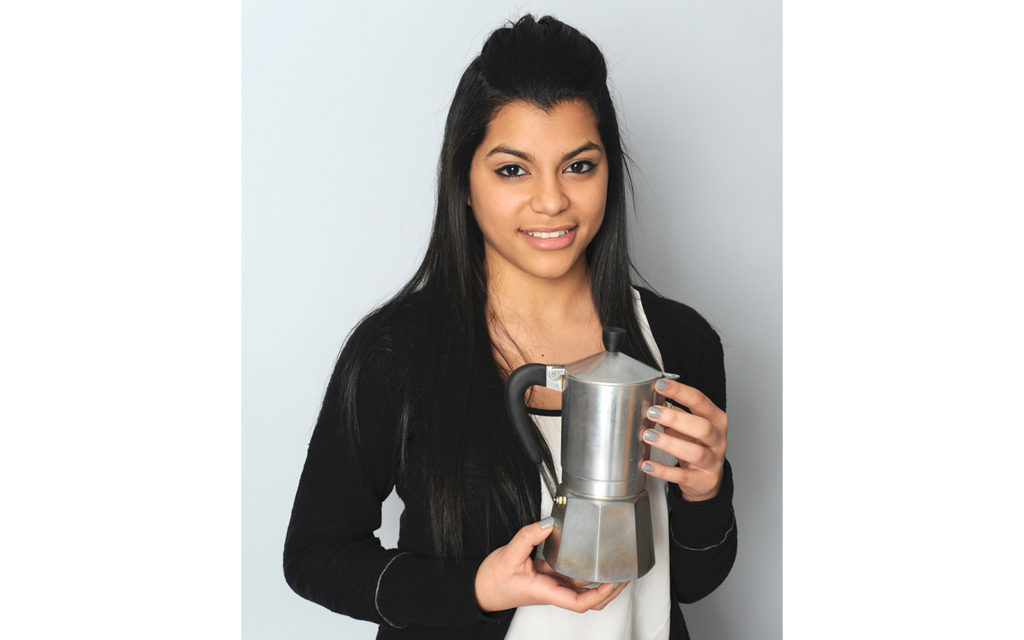
My hair and shirt were wet because of my tears. I listened to my mom explaining how we had to move to my grandmother’s house in Jarabacoa because my stepfather kicked us out. I was afraid of the man. Why did I take this news in a negative way? I knew my mamá wouldn’t mind having us there, but it was still scary to suddenly just move, especially on my twelfth birthday.
Doña Sila earned her nickname for being the strong wife of a militar. Mamá, my grandma, would travel to every city where my grandfather was sent to work, with all seven kids. She was respected. She had fights with neighbors, defending her gossiping little girls. She is a seventy-six-year-old that loves to argue with everyone, except me, about everything. She has a hard belly that looks as if she is seven months pregnant. Her glasses look fancy—they are fancy—she got them from the Guess store, but she has no idea about that. She doesn’t know how to read or write, but she is an expert on numbers. She plays the lottery every day and remembers over 20 phone numbers. Her front porch has our four favorite mecedoras (rocking chairs), where usually you can find Mamá smoking her Marlboro red cigarettes.
Arriving there, I could see my grandma standing, pouring water onto some flowers in the front of the house. As soon as the truck stopped, I ran out of it like a correcaminos (roadrunner). When I saw her, I didn’t cry. I squeezed her and right away asked her where my coffee was.
“Esta arriba de la mesa,” she answered, smiling at me. (It’s on top of the table.)
“Te amo, Mamá,” I said.
I ran inside the house and saw a caldero (stew pot) on the table. Under that was my cup of coffee and my bread. It had the perfect amount of sugar. It was hot, but didn’t burn my tongue. It was dark, but not too strong, and the bread was soft and puffy. It was a routine to be at my grandmother’s house and drink coffee several times in a day—at least 3 times and up to 6 times.
Around 6:30 p.m. Mamá went to the kitchen to get dinner ready. I followed her and asked for coffee, as usual. She saw my scrunchy face and said, “Y esa carita? Dañaras el sabor de mi café!” … that I would ruin the taste of the coffee and should only feel love when I drink it, because that was her special ingredient for me. That day I couldn’t drink or eat anything else but coffee and bread. I hoped that by having it I could feel better. That night I slept with Mamá. She has that extra skin that hangs under her arm, and I rubbed that skin until I fell asleep.
I woke up the next morning at 6:45 a.m., remembering that Mamá didn’t say happy birthday to me the day before. Walking to the kitchen, I found my coffee served in my special, purple Minnie Mouse mug. Next to it were eight pieces of mini breads and a picture of me, sitting on a little brown rocking chair with a big smile.
Even though I now live in Boston, while Mamá is back in the Dominican Republic, I call her every time I need help or simply want to listen to her voice. Even when I’m not able to taste her coffee, I smile, knowing that when I visit her, it will be waiting for me.
In this moving collection of essays, 11th grade students from Boston International High School explore meaningful objects from their families and former homes from around the world. Accompanying each essay is a full-page portrait of the student holding their object.
View In Store Read more from this book »